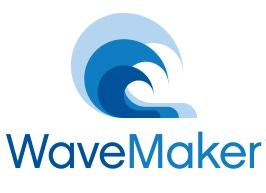WaveMaker Enterprise platform now offers Docker deployment option, along with Studio rapid app development toolkit.


EMP, Debunked: The Jolt That Could Fry The Cloud
EMP, Debunked: The Jolt That Could Fry The Cloud (Click image for larger view and slideshow.)
WaveMaker Enterprise, a newly issued platform-as-a-service, now uses Docker containers as its deployment step. While other platforms, including Apprenda, Red Hat's OpenShift, and VMware/Pivotal's Cloud Foundry, are moving the in the same direction, starting on Tuesday WaveMaker Enterprise gives you control over Docker as a default Linux container deployment environment, according to WaveMaker CEO Samir Ghosh.
After being acquired by VMware in 2011, WaveMaker was bought by Pramati Technologies in 2013 and set up as an independent company. As an independent platform, WaveMaker is one of a handful of successful PaaS implementations and is the only one with an integrated rapid development toolset and Docker deployment, said Ghosh in an interview. It is available both as a service and for on-premises installation. A one-year on-premises license costs $10,000 to run 25 containers; a license for an unlimited number of containers costs $100,000 per year.
WaveMaker Studio, the rapid application development toolset that comes with WaveMaker, is available as open source code and has been downloaded more than two million times. The Studio community consists of 30,000 registered users, according to Ghosh. The platform allows developers to produce an application once, then auto-adjust it for a particular target platform, whether a PC, mobile phone, or tablet.
[A Microsoft-oriented PaaS wants in on Docker too. Read more: What Docker Needs From PaaS: Apprenda's Take.]
Ghosh predicts that use of Docker as a deployment strategy will prove to be a step forward for WaveMaker. "Docker is complex for IT to get a handle on," he noted. With WaveMaker, an operations manager can engage in application sharding, or breaking an app up into many constituent parts in separate containers. Each container can then be deployed to the part of the infrastructure that IT operations deems appropriate.
"Click on deploy, and it goes wherever IT says it should go," Ghosh explained. The deployment option, however, is still in its beta phase.
The platform provides several container management features in addition to Docker formatting, including automatic hibernation (and quick restart) when an app isn't being used; an easy-to-use GUI portal with Docker-provided APIs and command-line interface; container provisioning and stack packaging; app upgrading; replication; and an option to deploy to bare metal or a virtualized private cloud infrastructure.
WaveMaker Enterprise is built around a WYSIWYG rapid development tool that allows computer-literate business users to compose an application using a drag-and-drop method, Ghosh said.
The underlying platform includes the plumbing necessary to configure applications for desktop, laptop, or mobile devices. The platform can work with Spring, Java, Hibernate, AngularJS, or JQuery code.
Development teams interested in trying WaveMaker Enterprise can get a free 30-day trial, with successive team members eligible to sign up -- for example, a 10-member team qualifies for 300 days of use, according to Ghosh.
Cloud Connect (Sept. 29 to Oct. 2, 2014) brings its "cloud-as–business–enabler" programming to Interop New York for the first time in 2014. The two-day Cloud Connect Summit will give Interop attendees an intensive immersion in how to leverage the cloud to drive innovation and growth for their business. In addition to the Summit, Interop will feature five cloud workshops programmed by Cloud Connect. The Interop Expo will also feature a Cloud Connect Zone showcasing cloud companies' technology solutions. Register with Discount Code MPIWK or $200 off Total Access or Cloud Connect Summit Passes.
About the Author(s)
You May Also Like







